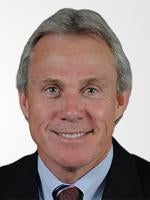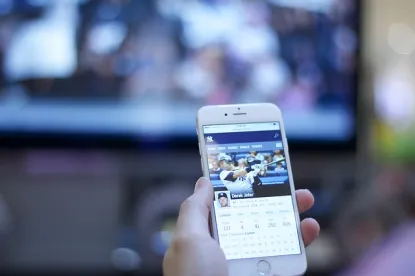A national survey concerning sports betting among young adults between the ages of 18 and 22 commissioned by new NCAA President Charlie Baker indicates that an increasing number of young adults across the country are wagering on sports. The fact that 31 states have passed laws legalizing sport wagering and online sportsbook companies are flooding the airways with commercials trumpeting the ease of accessibility and value of their sports wagering and fantasy sports products may be factors influencing the behavior.
Among the key findings of the widely publicized survey are the following:
-
Sports wagering is pervasive among 18 to 22 year-olds, with 58% having engaged in at least one sports betting activity;
-
67% percent of college students living on campus have engaged in sports betting;
-
41% of college students who bet on sports have placed a bet on their own school’s teams, and 35% have used a student bookmaker;
-
Young adults report that advertisements have influenced their betting activity, with 63% reporting having seen such TV betting ads; and
-
Mobile sports betting is the preferred choice, with 28% choosing a mobile app for their wagering activity.
The NCAA plans to conduct a further survey of sports wagering by collegiate student-athletes during the 2023-24 academic year. The last such survey the NCAA conducted a few years ago (of 23,000 then-current student-athletes across all three NCAA divisions) found the following:
- 24% of males and 5% of female student-athletes had wagered on sports within the previous year;
- 76% of males and 61% of female student-athletes reported believing that sports wagering was a harmless pastime;
- Male and female student-athletes in Division II and III engaged in sports wagering at higher levels than observed among Division I student-athletes; and
- Sports wagering can lead to significant well-being issues for some student-athletes, due in part to gambling losses. (One in 50 male student-athletes met the standard diagnostic criteria for problem gambling.)
These findings were despite the consistent messaging to student-athletes that sports wagering by student-athletes is prohibited under NCAA rules. Using themes such as “Don’t Bet On It” and “Don’t Risk This,” the NCAA has cautioned student-athletes that NCAA bylaws on sports wagering do not allow student-athletes or athletics employees to bet on any sport in which the NCAA conducts a championship at any level (amateur, collegiate, or professional) or to share information for sports wagering purposes.
Student-athletes found in violation of the NCAA’s sports wagering rules (Bylaw 10) will be declared ineligible for competition, subject to an appeal to the Committee on Student-Athlete Reinstatement. The appropriate penalties are determined on a case-by-case basis based on the guidelines developed within the student-athlete’s division. Athletic staff members found to have violated the sports wagering prohibitions are subject to disciplinary action consistent with the rules and procedures of the NCAA infractions process (Bylaw 19).
The NCAA’s ongoing and evolving efforts to protect the well-being of student-athletes and the integrity of collegiate sports competition include the formation of the NCAA Mental Health Advisory Committee, composed of clinical and research experts from various medical and scientific organizations. The Committee advises on best practices for managing gambling disorders and dealing with the negative impact of social media harassment and abuse (which often emanates from or involves individuals participating in sports wagering). The NCAA has also partnered with EPIC Risk Management to provide a sports wagering and gambling harm prevention program. This program takes various forms, including on-demand virtual training and in-person campus educational sessions.
At a Washington D.C. symposium on June 8, 2023, NCAA President Baker stated that he views sports betting as a “major opportunity” and potential new revenue source for the NCAA. In making these comments, he specifically referenced the recent survey results and the fact that “two-thirds to almost three-quarters of all people between the ages of 18 and 22 [are] betting on sports.” He cautioned about the impact that sports betting could be having on student-athletes. “The truth is, if there are lots of kids on campus betting on college sports and betting on the teams on their campus, this puts student-athletes in a very difficult position.” He then called for the creation of a program to develop tools and techniques that athletes are going to need to deal with such issues and influences. These comments echo similar sentiments expressed by Stan Wilcox, NCAA Executive Vice President of Regulatory Affairs, who stated, “[W]hile sports wagering creates opportunities for our fans to uniquely engage with NCAA competition in a legal and responsible manner, we have to be mindful of the enhanced risks it creates, particularly around student-athlete well-being and competition integrity.”




 />i
/>i

